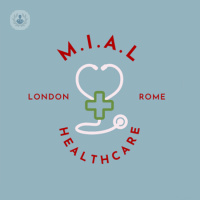Comorbidity
Dr Mashkur Khan - Internal medicine
Created on: 01-09-2014
Updated on: 05-26-2023
Edited by: Karolyn Judge
What is a comorbidity?
A comorbidity is a primary disease or condition that co-occurs with but is often independent of, another disease or disorder. There are some conditions that are more likely than others to be comorbid with one another. As well as being a term that is used broadly in medicine, comorbidity is frequently referred to in psychology. In the context of psychology, comorbidity refers to more than one mental disorder that exists alongside a primary diagnosis, or the reason that a patient is referred to in the first place. An example of this in psychology would be a patient who may have schizophrenia combined with a personality disorder. This may be because the doctor is not able to tell much of a difference between the two conditions.

What are examples of comorbidity in psychology?
The following examples are commonly comorbid:
Depressive disorders – these often coexist with conditions such as post-traumatic stress disorder, substance abuse and serious illnesses.
Anxiety disorders – these disorders can be combined with schizophrenia, bipolar disorder and post-traumatic stress amongst others.
Schizophrenia – this condition is comorbid with depression, anxiety and addiction.
Addiction – patients develop other psychological disorders as a result of their addictions.
What are multiple comorbidities?
Multiple comorbidities, or multimorbidity, means having more than two illnesses or diseases at the same time. It's common and increases the complexity of disease management in patients.
How are comorbidities related to mental health?
When comorbidities are related to mental health, it's when there are mental and physical disorders within the same person. This is despite the chronological order in which they have occurred or the causes.

Mental health conditions that manifest as a comorbidity include:
- Eating disorders
- Substance abuse
- Anxiety disorders
Is comorbidity related to schizophrenia?
Yes. It's very common that conditions such as depression, OCD, panic and substance abuse are disorders that can co-exist with schizophrenia.
Is comorbidity related to anxiety and depression?
The most common comorbidities with anxiety are:
- Depressive disorders, and;
- Panic disorders.

It's also common to see stress-related disorders occur with depression.
How are comorbid illnesses treated?
The combination of conditions affects case management for treatment in patients who experience comorbidity. There is no one size fits all approach to the condition.










